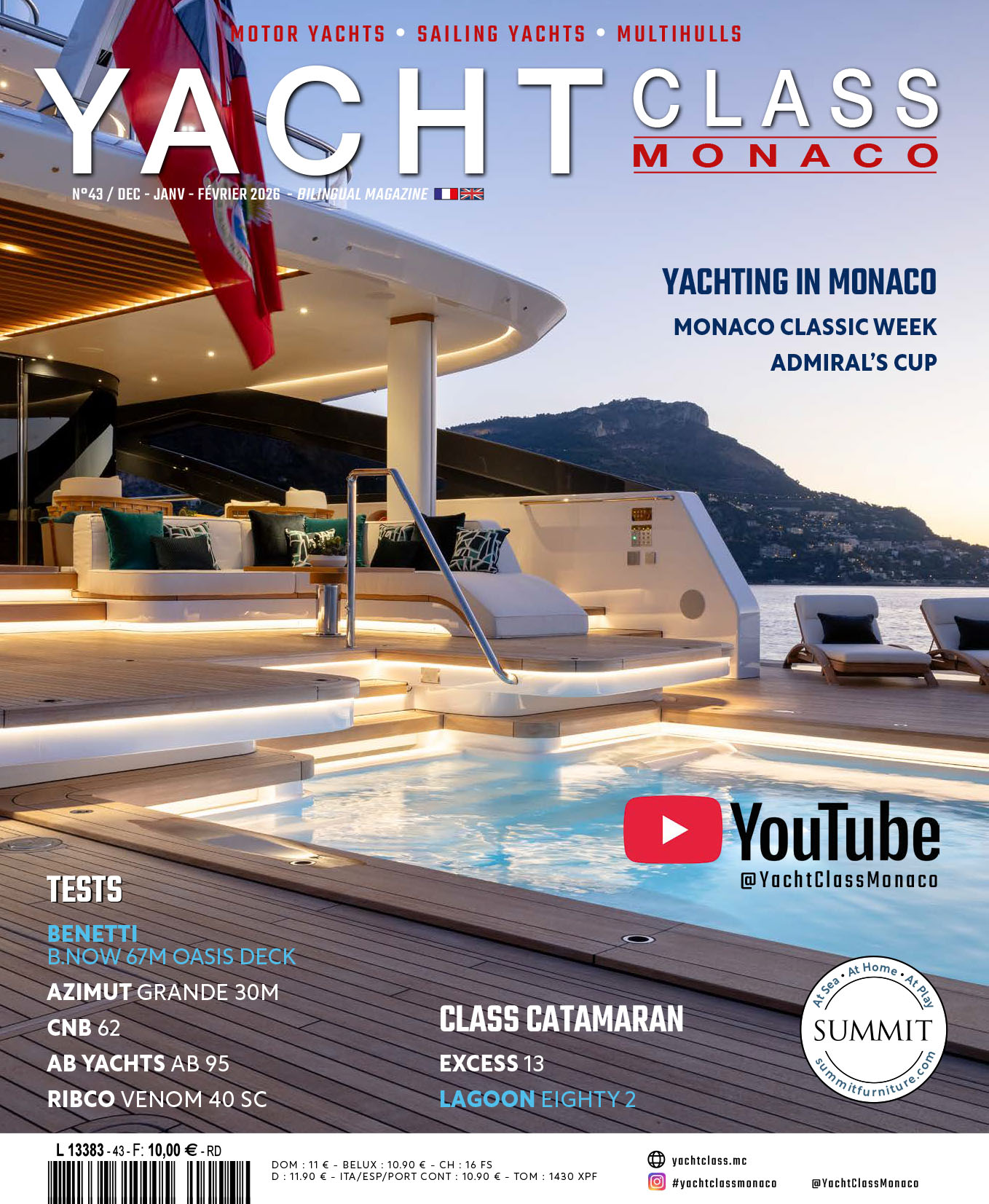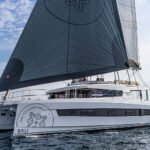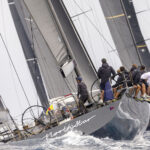Yacht Class n°40 (mars-avril-mai 2025)
Against a backdrop of geopolitical turmoil, the Economic Symposium held at the Yacht Club de Monaco (YCM) shed light on the various players in the yachting industry.
Text: Christophe Varène – Photos: DR
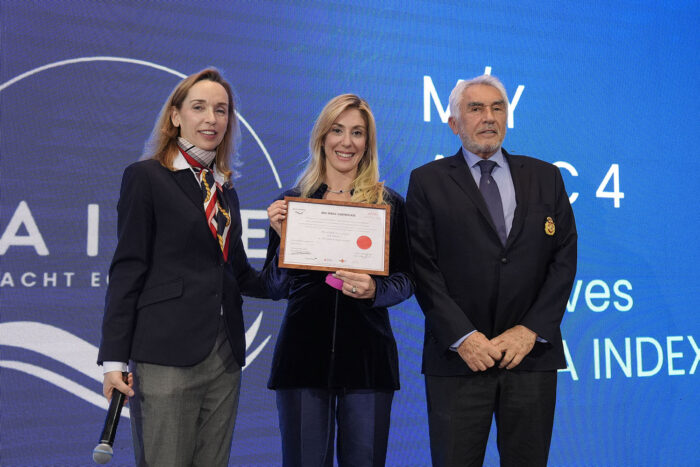
The 17th edition of the “La Belle Classe Superyachts” economic symposium was held on 6th February as part of a traditional dinner-debate on the theme of “The impact of geopolitical and economic tensions on the yachting industry”, attended by representatives from the entire yachting industry chain (shipowners, shipyards, brokers, designers, captains, maritime experts, etc.). In his opening address, Bernard d’Alessandri, Secretary General of the Yacht Club de Monaco, stressed that “in response to geopolitical uncertainties, international yachting must not only adapt, but also anticipate. The YCM’s role is to support this transformation by promoting innovative and responsible yachting”. The various speakers then addressed these strategic issues from a number of angles.
Insurance on the rise
Maritime transit has particularly shifted from the Gulf of Aden to the Cape of Good Hope, reports Ralph Dazert (SuperYacht Times): “We had anticipated a decrease in the number of yachts going to the Arabian Gulf, but on the contrary, we are seeing an increase in the number of boats based in the Emirates. The Middle East remains a fast-growing region for yachting”. Speaking about sailing in the Red Sea, Christos Metallinos (Captain of the M/Y Emir) points out that “the increase in insurance premiums is a major obstacle, reaching or even exceeding the cost of a charter”. And Vincent Huens de Brouwer (Covership) confirms this situation with the refusal of some owners to cross the Suez Canal to go to the Far East. For his part, Olivier Zuber (Bombardier) warns of the 25% increase in taxes on aircraft imported into the United States, with private aviation, like yachting, impacted by the global situation: “Customers are looking for innovative solutions in terms of comfort, safety or autonomy”. Hence the need to constantly adjust its offerings.
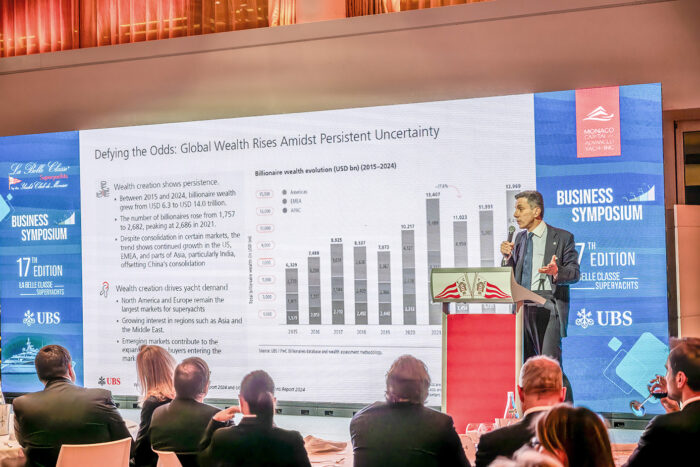
Recession and protectionism
Donald Trump’s second term in office is also raising a number of questions, as: “the United States being a key variable in the yachting market”, notes Paul Tourret (Institut Supérieur d’Économie Maritime), worrying about a possible American recession and the consequences of growing protectionism. Ralph Dazert concurs, fearing unpredictable decisions by the American President. But the outlook, marked by a slowdown in globalisation, remains positive despite moderate growth in world GDP in 2025, with emerging yachting markets such as the Arabian Gulf and South-East Asia, and a doubling in the wealth of billionaires in ten years to $14,000 billion, says Ernesto De Marzio (UBS Monaco). Demand for superyachts remains strong in North America and Europe, the latter region accounting for 30% of the world’s fleet and boasting good export results thanks to the excellence of its shipyards, their innovations, their moves towards energy transition and a weak euro.
Recognition from SEA Index
In 2024, sales of new yachts over 30m totalled 192 units, but banks are no longer content to evaluate buyers’ financial situation alone. Tools such as the SEA Index, which measures the energy efficiency of superyachts, are being integrated into the decision-making process, which is undeniably positioning the Principality as the “Capital of advanced yachting”.
